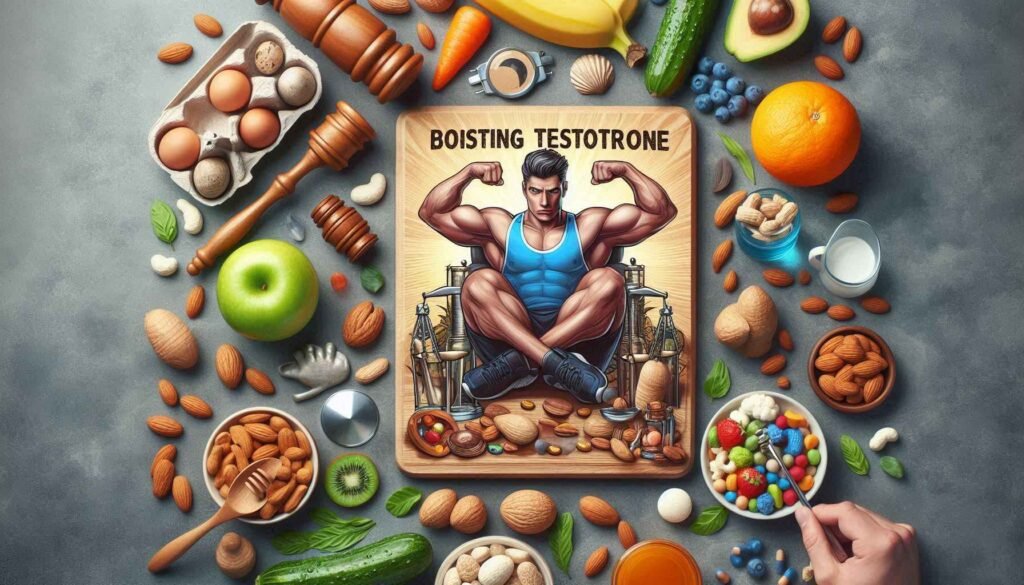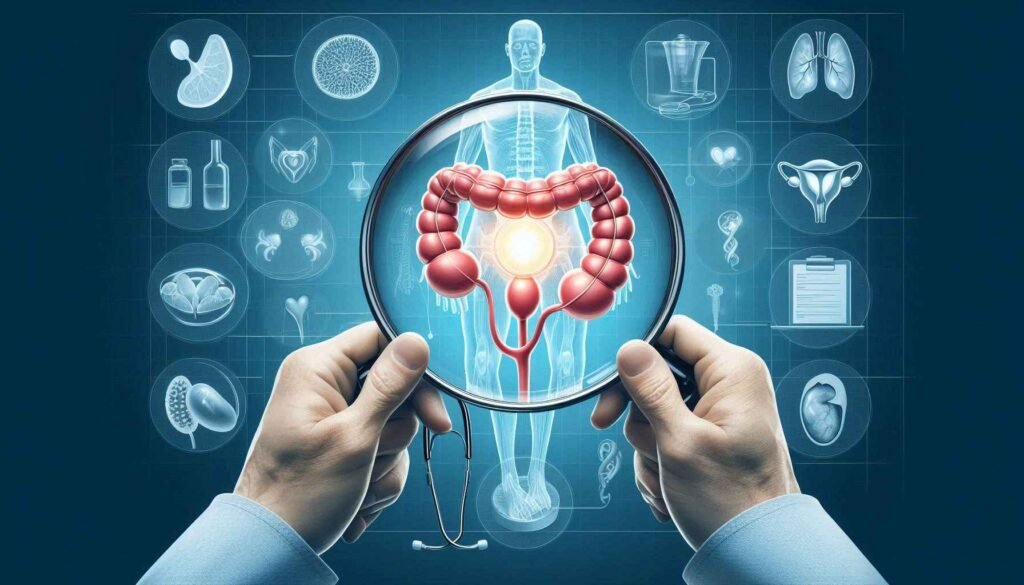
Why You Should Care About Testosterone
Testosterone, often called the “male hormone,” plays a significant role in a man’s overall health. While it’s primarily associated with muscle growth, libido, and energy levels, testosterone also impacts mood, bone density, fat distribution, and even cognitive function. As men age, testosterone levels naturally decline, leading to potential issues like low energy, decreased muscle mass, and sometimes even depression.
For many, the prospect of boosting testosterone through synthetic treatments like hormone replacement therapy may seem appealing. However, these treatments can come with side effects, and not everyone wants to go down that route. Fortunately, there are natural ways to boost testosterone levels through diet and exercise.
This post will walk you through scientifically backed ways to elevate your testosterone levels by focusing on natural methods, helping you feel stronger, more energized, and healthier overall.
1. The Role of Testosterone in Men’s Health
Testosterone is the primary male sex hormone, produced in the testicles. It’s responsible for maintaining reproductive tissues, supporting muscle mass, regulating fat distribution, and producing red blood cells. After the age of 30, testosterone levels begin to drop by about 1% per year, which can lead to symptoms like decreased libido, erectile dysfunction, fatigue, and muscle loss. While this decline is natural, adopting lifestyle changes can help keep your levels optimal.
Men with low testosterone levels may notice symptoms like:
- Reduced energy levels
- Loss of muscle mass
- Mood changes (irritability, depression)
- Low libido
- Increased body fat
While these changes can be frustrating, the good news is that by making simple adjustments to your diet and fitness routine, you can naturally enhance testosterone production.
2. The Best Foods to Boost Testosterone
A. Incorporate Healthy Fats
One of the key components of a testosterone-boosting diet is healthy fats. Dietary fats, particularly saturated fats, are essential for testosterone production. They provide the building blocks your body needs to create hormones.
- Egg Yolks: Packed with healthy fats and cholesterol, egg yolks support testosterone production. Cholesterol is necessary for the synthesis of testosterone.
- Olive Oil: Studies have shown that consuming extra virgin olive oil increases testosterone levels and improves testicular health.
- Avocados and Nuts: These are excellent sources of healthy monounsaturated fats and also contain magnesium, which plays a role in testosterone regulation.
B. Eat Protein-Rich Foods
Protein helps in muscle building, which is closely related to testosterone production. Additionally, adequate protein intake ensures that your body repairs tissues properly, aiding recovery from workouts.
- Lean Meats: Chicken, turkey, and grass-fed beef are rich in protein and zinc. Zinc is one of the most critical nutrients for testosterone production.
- Fish (especially fatty fish): Fish like salmon, tuna, and mackerel are rich in omega-3 fatty acids, which can boost your testosterone levels while improving heart health.
C. Include Zinc and Magnesium-Rich Foods
Zinc and magnesium are minerals known to support testosterone production. In fact, studies show that supplementing with these minerals can increase testosterone levels, especially if you’re deficient.
- Pumpkin Seeds and Spinach: These are packed with magnesium and zinc, both of which have been linked to higher testosterone levels.
- Oysters: These are one of the richest sources of zinc, making them great for boosting testosterone naturally.
D. Add Cruciferous Vegetables to Your Plate
Cruciferous vegetables like broccoli, cauliflower, and kale are known to help balance estrogen levels in men by acting as natural aromatase inhibitors. Lower estrogen levels mean more available testosterone.
- Broccoli, Cauliflower, and Brussels Sprouts: These are excellent at helping your body reduce excess estrogen, a hormone that can suppress testosterone levels.
3. Foods and Habits to Avoid
Just as there are foods that can increase testosterone, there are also ones that may reduce your levels.
- Processed Foods: Highly processed foods, especially those high in trans fats, can lower testosterone levels and cause weight gain, which further exacerbates low testosterone.
- Sugary Snacks: Excessive sugar intake spikes insulin levels, which in turn can lead to a decrease in testosterone.
- Alcohol: Consuming too much alcohol can reduce testosterone levels by affecting the body’s ability to produce testosterone and contributing to weight gain.
4. Exercise Tips to Boost Testosterone
A. Strength Training
Strength training, especially lifting heavy weights, is one of the most effective ways to boost testosterone. Focus on compound movements that work multiple muscle groups at once.
- Squats, Deadlifts, and Bench Press: These exercises target large muscle groups, stimulating more testosterone production. Studies show that resistance training increases testosterone levels temporarily after working out, especially when using heavy weights with fewer repetitions.
B. High-Intensity Interval Training (HIIT)
HIIT involves short bursts of intense activity followed by short recovery periods. This type of exercise has been shown to increase testosterone levels and improve cardiovascular health.
- Sprints or Cycling: Incorporating HIIT routines two or three times a week can help boost your hormone levels while promoting fat loss.
C. Don’t Overtrain
While exercise is important, overtraining can lead to elevated cortisol levels, a stress hormone that suppresses testosterone. Balance intense workouts with adequate rest and recovery days to keep testosterone levels high.
5. Lifestyle Changes That Can Boost Testosterone
A. Get Enough Sleep
Testosterone is primarily produced during sleep, especially during the REM stages. Studies show that getting less than six hours of sleep can significantly reduce testosterone levels the next day. Aim for 7-9 hours of quality sleep each night to support hormone production.
B. Manage Stress Levels
Chronic stress leads to elevated cortisol levels, which can decrease testosterone production. Stress management techniques like mindfulness, deep breathing exercises, or yoga can help reduce cortisol levels and allow testosterone levels to stay balanced.
C. Maintain a Healthy Weight
Carrying excess weight, especially in the form of visceral fat, has been linked to lower testosterone levels. Implementing a diet rich in whole foods, combined with regular exercise, can help you maintain a healthy weight and support testosterone production.
6. Supplements to Consider
While a balanced diet is the best way to ensure you’re getting all the nutrients you need, supplements can help fill in the gaps. Here are a few that have been shown to support testosterone production:
- Vitamin D: Known as the “sunshine vitamin,” vitamin D is crucial for testosterone production. If you’re not getting enough sunlight, consider a supplement.
- Zinc and Magnesium: These minerals are essential for testosterone production. If you’re deficient, supplements can help restore optimal levels.
- Ashwagandha: An adaptogenic herb, ashwagandha has been shown to reduce cortisol and boost testosterone levels in men.
Conclusion: Achieving Optimal Testosterone Levels Naturally
Boosting testosterone levels naturally doesn’t have to be complicated. With the right combination of diet, exercise, and lifestyle changes, you can effectively elevate your hormone levels, leading to better health, more energy, and improved vitality. Start small by incorporating the foods and exercises mentioned in this post into your routine, and remember that consistency is key. While results may take time, the payoff is worth it for a healthier, more energized you.



